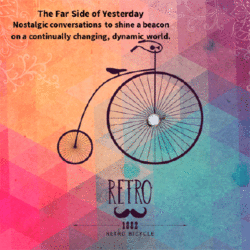![]()
This is for you. It is a Round Tuit. Guard it with your life. A Tuit is hard to come by, especially the round ones. It is an indispensable item that will help you become a better person. For years we have heard people say, “I’ll do it as soon as I get a round Tuit.” Now that you have a round Tuit of your very own, get to it.
There is something you know you must do. Yet you’re worried that it won’t be perfect, that it will be difficult, uncomfortable and maybe even painful. You wonder what others will think of you, whether they might silently disapprove, openly taunt you or even oppose you. You worry that it could be more challenging and more demanding than you anticipate. Go ahead and do it anyway. The sooner you get started, the more confident and effective you’ll be.
Yes, there will be problems. And with solid commitment, you will find a way through every one of them. Of course, there will be challenges. And from each one you’ll build the strength to take on the next one. Accomplishment is never easy and rarely perfect, yet it beats sitting around worrying about how powerless you are. When you know you must, then get up, get a Round Tuit and get it done.
Plans often go awry in our hectic, raucous, and confusing lives where irritation mounts and anxieties assail you. It is easier to stretch out on the couch, commandeer the remote and wash down a handful of salted peanuts with a cold Abita and let the moment’s troubles fade away. Trouble is it is often a fleeting respite.
Put in perspective, even the most daunting problems are relatively minor when compared to the big picture. Because we tend to see what we want to see, changing perspectives can change us. Aldous Huxley said “There are things known and there are things unknown, and in between are the doors of perception.”
A pristine brook babbling across a peaceful country trail seen in a framed snapshot, leads nowhere. Without perspective, it is merely an enjoyable two-dimensional shape on a flat surface caught in a moment of time that tells us nothing more than what we see with our own eyes. Oh! How little our eyes permit us to see.
Shoes off. Yipes! as the icy stream awakens our senses and we charge up the bank to recover, take a deep breath and plunge back into the brook up to our knees. We will be changed by that perspective.
To change ourselves effectively, we must first change our perceptions.
Everything depends on what we are looking for and the tint of the glass through which it is viewed. John Lubbock (The Beauties of Nature and the Wonders of the World We Live in) notes that in a single field, the farmer will notice the crop, the geologists the fossils, botanists the flowers, artists the coloring, sportsmen the cover for the game. While we may all look at the same things, it does not follow that we should see them.
When you dance to the music you hear, you seem ridiculous to those who don’t hear the music.
One being’s insanity is an other’s reality. Keep in mind that you, like the rest of us, are absolutely unique.
If you let others, mom and dad, teacher, priest, or television-know-it-all, tell you how to live your life you will forfeit your uniqueness. Life’s mission is “to think what nobody has yet thought, about that which everybody sees. “(Erwin Schrödinger)
If you believe that your work is the most important thing you do, you may know the lonely feeling that there is no one around you who cares. Try to see things in the correct proportions and understand that great things are indeed great and small things merely small.
If you are convinced that your way is the only and best way, you may labor under false assumptions. It is healthy to post a question mark on the suppositions you take for granted and challenge yourself to go beyond them. Consider that many of us explain events in ways that validate our version of reality.
Where to start?
Distance yourself in space or time when you are troubled. Distance creates a new perspective. Acknowledge that we live in chaos and that chaos can be defined as order waiting to be decoded, untangled and interpreted. Don’t be afraid to go slowly; be terrified of stopping. “Do, or do not. There is no try.” (Yoda)
Root out the obvious. The obvious, like a rare orchid, is often tangled in the briar patch with exotic plants like Bull Thistle and invasive plants like kudzu. To a botanist, the orchid is as plain as the nose on your face. I don’t know about you but I can’t see much of the nose on my face without looking in a mirror. We all need to look honestly into a mirror at some point.
Some people seem to possess a mental roadmap of their tomorrows. Often, something stops them from starting the journey. Possibly they wait for circumstances or imagined problems to improve or change. They may convince themselves that they are comfortable and feel secure with the status quo.
Change is a risky proposition, so they bury their dreams and never venture into the world of opportunities, feeling unfulfilled at the journey’s end. In truth, you risk nothing for the pursuit of your passion; you risk more by not taking the first step.
Cast-off the fictitious self you flaunt to the world.
Find the courageous moments when you feel strong and energized and stop trying to live the lives you are not living. You cannot be all things to all people. Find the courage to be the person your heart knows you to be and rise to a much higher level. Own the profound blessings and treasured dreams that truly matter and you will not only overcome obstacles you will go the whole way.
Look beyond need.
Need focus your attention on absence and limitation. See instead the opportunities that need reveals. Free your intellect to soar like a skyrocket to reach the loftiest and most productive, positive possibilities.
Today is an excellent day. Open your eyes wide and see how lush and rich it is. Open your heart and embrace the splendor and peerless wonder of all that surrounds you. Welcome it just as it is. Whatever it brings, marvel that you are privileged to experience it. Look for the blessings in every moment and store them in your soul to be revealed when you need them the most.

